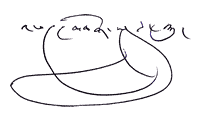Dear friends near and far,
As always, I hope this message finds you well, healthy and happy. On today’s Guru Rinpoche day, I would like to share with you some answers to common questions.
First, these days many people are asking about reincarnation and tulkus (literally nirmanakayas, this is the title given to recognized reincarnations of past masters). There are many who wonder what the difference is between the processes of rebirth of ordinary Dharma practitioners and that of tulkus.
Jé Götsangpa actually explained that there are four different processes of rebirth:
- First, those who knowingly enter the womb, knowingly take rebirth, and knowingly perform the activities for the benefit of beings are the buddhas.
- Second, those who knowingly enter the womb, but then forget who they are as they are born, are the shravakas (listeners).
- Third, those who knowingly enter the womb, knowingly take rebirth, but then display ignorance of who they are, are the tulkus, siddhas, and other realized masters.
- Fourth, those who unknowingly enter the womb, unknowingly take rebirth, but due to the power of their previous aspirations and accumulations meet with the Dharma and follow the practice are ordinary beings.
The difference between ordinary beings and realized masters, siddhas, or tulkus, then, is that the former have no control over or recollection of their process of rebirth, whereas the latter do, but act as if they did not. Shravakas, on the other hand, enter the womb knowingly but lose this awareness as they take rebirth, since they lack full realization. Buddhas, of course, only go through the process of rebirth and life with full knowledge and awareness.
The second question I would like to answer is about the relative importance of emptiness and compassion. Some people may understand emptiness to some extent, but find it difficult to experience compassion, whereas for others, compassion comes easily, but they do not understand emptiness. In general, we need to focus on emptiness and compassion jointly.
Jé Götsangpa recorded a teaching on this point by Lama Zhang, who told him:
If you had to choose between emptiness and compassion, which one would you choose? You should choose compassion.
The reason is that when you genuinely practice compassion, all six paramitas of generosity, discipline, patience, diligence, meditation and wisdom are included. In particular, through compassion, wisdom, the realization of emptiness, will dawn. That is why between compassion and emptiness, one should choose compassion.
As the Buddha said in the Sutra of the Myriad Rivers:
When beings are happy, I am happy. When beings are unhappy, I am unhappy. To love beings is to love me. To harm beings is to harm me.
Therefore, of all the offerings one can make to the buddhas, the greatest one is to cultivate loving kindness and compassion for beings.
How then do we cultivate compassion? First, we need to cultivate it for our loved ones, whoever it is easiest for us to feel compassion, without any concern for ourselves. We should have no hope for any benefit from our practice, or for any particular result to come from our cultivation of compassion. Thus, we should cultivate compassion without any self-clinging or ego, solely focusing on wish for others to be free from suffering and the causes of suffering. Then, we gradually expand our compassion to include all beings, wishing for them all to understand suffering and the causes of suffering and thereby be liberated from it. This should be our sole focus. If, as we cultivate compassion, we have self-clinging, our compassion will not be genuine. If we cling onto the benefits of the practice, our compassion will not be genuine. If we cling onto compassion itself, it will not be genuine either. Our sole focus should be on genuinely wishing all beings to be free from suffering and the causes of suffering.
So today I wanted to answer these two questions, first regarding the different processes of rebirth, and second regarding the relative importance of emptiness and compassion. Because these are questions that come up very often, I thought I would answer them based on Jé Götsangpa’s writings.
In brief, there are four different levels of control and awareness beings may have when they undergo rebirth, from the total unawareness of ordinary beings to the complete awareness of buddhas. Tulkus have full awareness of their process of rebirth, but they display unawareness.
As for compassion and emptiness, some practitioners over time start having less regard for compassion, placing more importance on emptiness, but actually, if one had to choose, compassion should be our first choice.
So, on this Guru Rinpoche day, please bring up as genuine a compassion as possible as you engage in your Dharma practice as earnestly as you can.
With all my love and prayers,
Sarva Mangalam.

Translations
简体中文
繁體中文
Bahasa Indonesia
Français
Deutsch
Ελληνικά
Português
Русский
Español
Svenska
ภาษาไทย
Українська
Tiếng Việt






Responses